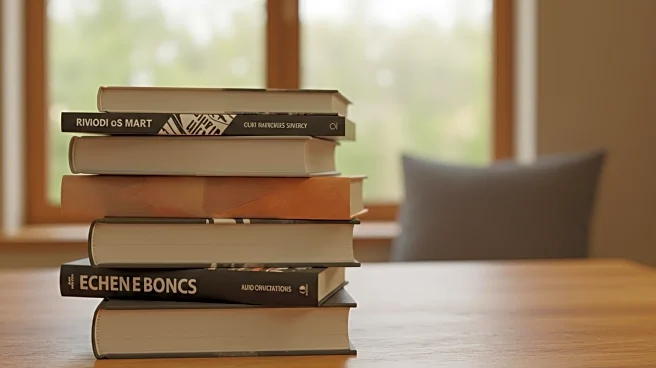What is the story about?
What's Happening?
The German Book Prize has unveiled its 2025 longlist, featuring 20 novels that reflect the precarious reality of contemporary times. Submitted by 124 publishers, the original pool consisted of 229 novels. The longlist will be narrowed down to a six-title shortlist on September 16, with the winner announced on October 13 during the Frankfurter Buchmesse. The jury, led by Laura de Weck, emphasized the creative language and narrative perspectives that define this year's selection. The longlist includes both debut and established authors, showcasing a range of storytelling styles from classical narratives to dystopian tales.
Why It's Important?
The German Book Prize is a significant event in the literary world, offering a €25,000 prize to the winner and €2,500 to each of the five finalists. It highlights the diversity and richness of contemporary literature, providing a platform for authors to gain international recognition. The themes explored in the longlisted novels resonate with current global challenges, offering insights into societal issues and human experiences. This prize not only celebrates literary excellence but also encourages dialogue and reflection on the complexities of modern life.
What's Next?
The next step in the German Book Prize process is the announcement of the shortlist on September 16. This will be followed by the winner's announcement on October 13 at the Frankfurter Buchmesse. The shortlisted authors will gain increased visibility and opportunities for their works to reach a broader audience. The prize ceremony will likely attract attention from literary critics, publishers, and readers worldwide, further elevating the profiles of the selected authors.
Beyond the Headlines
The German Book Prize serves as a cultural barometer, reflecting the societal and existential concerns of our time through literature. It underscores the role of storytelling in understanding and navigating the complexities of human existence. The prize also highlights the importance of supporting literary arts and fostering a vibrant cultural landscape, which can contribute to social cohesion and intellectual growth.
















